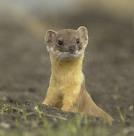The breathless debate spawned by U.K. endocrinologist Dr. Klaus-Martin Shulte offers a perfect case study in how NOT to debate serious scientific issues.
Shulte – motivated, we are led to believe, by a desire to ease the minds of defenceless children who are worried about climate change – has launched what can fairly be described as an effort to repudiate the work of Dr. Naomi Oreskes. Oreskes demonstrated in the prestigious journal Science that there is remarkable consensus in legitimate scientific literature about climate change. Shulte’s article is purported to counter that finding.
Few people have actually seen his yet-to-be-published “peer-reviewed” paper, but somehow its conclusions are being touted by the leading climate change deniers in the U.S. and the U.K. Oreskes, who has good reason to be tired and frustrated after facing three years of constant abuse over the same still-golden 2004 article, has responded sharply to the criticism that was being attributed to Shulte. And now the good endocrinologist is accusing Oreskes of being “discourteous” and is demanding an apology.
I hope she tells him to stick it in his ear.
The whole notion of peer-reviewed science was developed, in part, to protect everyone from getting into this kind of ridiculous mud fest. In real scientific circles, ethical researchers prepare papers in good faith and then they submit those papers to reputable publications (of which Sonja Boehmer-Christiansen’s journal Energy and Environment may or may not be one). Said papers are then reviewed by a group of experts who a) know something about the field (excusing “Viscount Monckton” and Marc Morano) and who b) have the minimum amount of discretion necessary to prevent them sharing the papers around until they are truly ready for publication.
I have no idea how the denier community received Shulte’s draft ahead of its publication. Maybe he left a copy on the Tube on his way home and the Viscount Monckton of Brenchley happened along and picked it up. But somehow this purportedly peer-reviewed study is all over the Denier News, fully bolstered with interpretation and further comment. And in the face of that flurry of criticism, Oreskes apparently felt moved to respond – to defend a reputation that has survived previous such attacks unscathed.
If Shulte has the goods, we’ll be interested to see the evidence when it actually comes time to publish. In the meantime, he, his Viscount buddy and Senator James Inhofe’s pet weasel are just playing politics – same as always.
Subscribe to our newsletter
Stay up to date with DeSmog news and alerts







